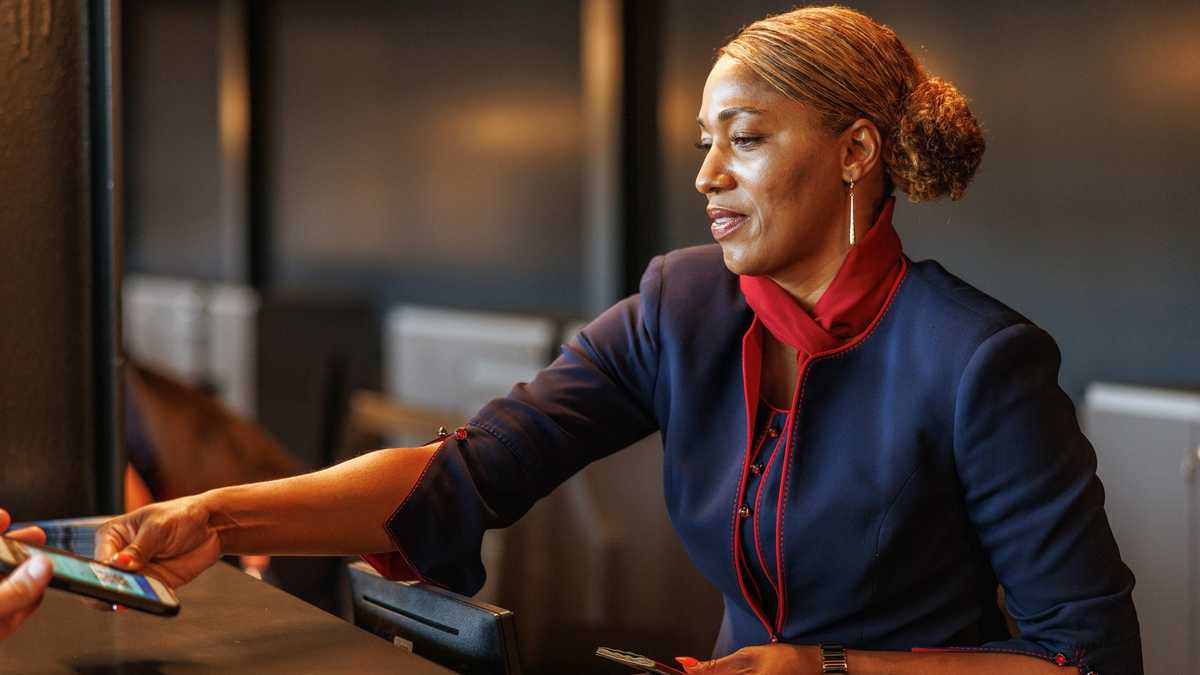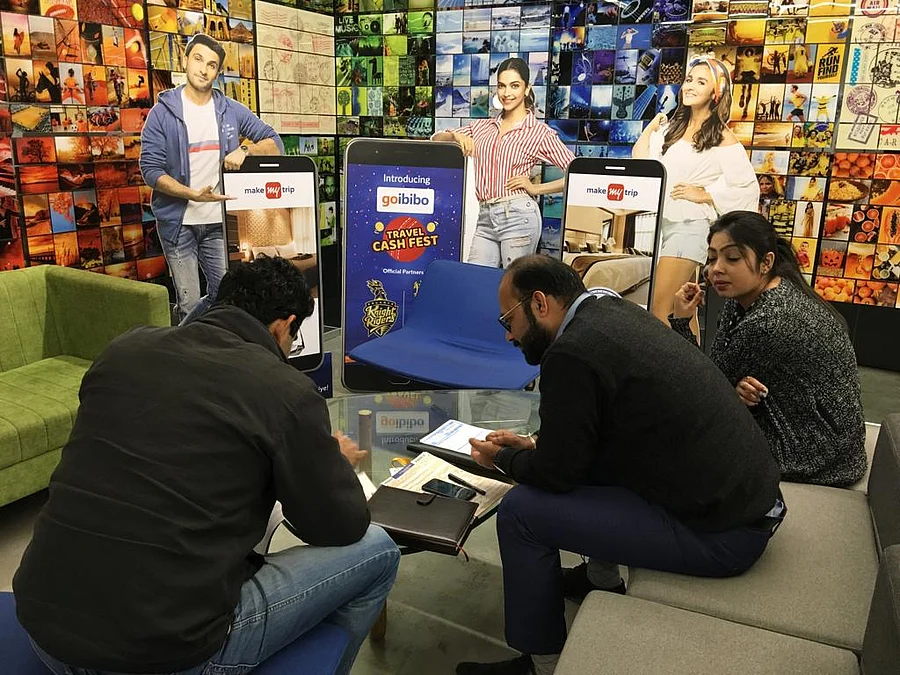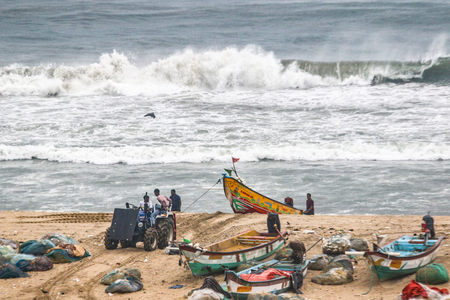Copyright yen

"You're ten minutes late," the agent said, her voice calm but firm. The keyboard clacked beneath her fingers. I leaned forward, breathless, suitcase handle shaking in my hand. "Please, just check again. I can still see the plane. It's right there." She glanced at the monitor and shook her head. "Boarding closed." Through the glass, I could see the last shuttle pulling away from the gate. A man in a reflective vest signalled, and the aircraft door sealed with a dull thud that sounded like a verdict. I tried to explain the traffic, the ride-share delay, the red lights that refused to turn green, and the wrong turn the driver took at the toll gate. However, time had already chosen its side. "Ma'am, I'm sorry. The next flight is in five hours," she said. I stood still, feeling every eye behind me in the queue. A businessman exhaled impatiently. A family whispered, "She missed it." My phone buzzed with another reminder I didn't need: Flight 1075, now boarding. I pressed my palm against the glass as the plane began to taxi. Its lights winked across the runway, shrinking until they merged with the dusk. For a long moment, I couldn't move. I had never missed a flight before. I had timed all meetings, interviews, and plans to the minute. But that evening, the clock had become my enemy. Defeated, I dragged my suitcase to an empty bench near the vending machine. The agent avoided my eyes as she spoke to the next passenger. I tried to call my colleague, who was waiting in Abuja. The line didn't connect. I sighed, unwrapped a biscuit from my bag, and told myself that missing one flight wasn't the end of the world. Ten minutes later, the world shifted. My phone buzzed again, this time not with a reminder but a headline: Breaking: Flight 1075 crashes shortly after take off from Lagos. The biscuit slipped from my hand. My chest tightened. People nearby gasped as notifications spread like a wave across the hall. I looked toward the runway, where the lights had disappeared. The same agent who had denied me stood frozen behind her counter. Our eyes met. Neither of us spoke. The plane I had begged to board had fallen from the sky. I had always believed punctuality was my shield. My mother used to say, "Better an hour early than a minute late." For years, I lived by that rule. I set alarms, built buffers, and carried extra chargers so nothing could delay me. That morning was supposed to be like any other business trip. I worked as a procurement officer for a logistics firm in Lagos. We had just won a government contract in Abuja, and I was to finalise the supplier list. They scheduled the meeting for 4 p.m., and missing it would have cost my team the deal. I woke up before dawn, packed my files, double-checked my laptop, and booked a ride for 10 a.m. They scheduled the flight for 12:15. I calculated everything: the drive to Murtala Muhammed, the security queue, and even a stop for bottled water. But Lagos had other plans. Halfway through the journey, traffic locked us in like a vice. A broken tanker blocked the expressway. My driver, Tunde, kept muttering apologies. "Madam, we go move soon." Every passing minute felt heavier. I checked the clock repeatedly. My heart raced as Google Maps glowed red. "Please, try another route," I said finally. He nodded and turned toward a side road. The detour worked for a while until we hit another jam near the toll gate. My flight reminder pinged: Check-in closing in 20 minutes. I started calling the airline, hoping to check in online. The call failed twice. When we finally reached the airport gates, I dashed inside, nearly tripping over my own suitcase. My shoes slipped on the tiles as I sprinted toward the security scanners. The officer scanned my ID slowly, too slowly. I almost cried when he asked me to open my bag. "Madam, routine inspection," he said. By the time I reached the departure hall, my lungs burned. The digital clock above Gate C3 read 12:10. The agent at the counter looked up, calm and detached. "Boarding closed." I pleaded. "Please, it's only five minutes." She typed something, frowned slightly, and said, "It's ten minutes now. The doors are shut." My heart sank. All that planning, all that effort, and I was ten minutes late. I walked away with the heavy certainty of failure, thinking my most significant loss on that day was a business opportunity. I didn't yet know what I had escaped. I sat on the bench near the vending machine, scrolling through my phone. My colleague kept calling, asking if I had boarded. "Gate closed," I said flatly. "What? The meeting starts at four. Try another flight," he urged. "I'll check," I replied, though I could barely think. My mind was still replaying the moment the agent said no, her voice clipped and final. Around me, airport noise carried on: children crying, announcements echoing, wheels rolling across tiles. A cleaner hummed softly as she mopped the floor. Everything felt normal, almost annoyingly so. People sipped coffee, glanced at departure screens, and hurried to other gates. Life carried on, unaware that I had paused mine. Then the alerts started. The first came as a tweet: Witness reports fire near Ikeja shortly after take off. I frowned, thinking it was some industrial accident. Then another popped up: Breaking: Possible crash involving Flight 1075 from Lagos to Abuja. I froze. That was my flight. My thumb trembled as I refreshed the page again and again. More details trickled in: "unconfirmed casualties," "emergency response dispatched," "smoke visible from outskirts." A photo appeared, blurry but unmistakable: a plume of black rising into the evening sky. The airport hall grew tense. People gathered near the television mounted above the waiting area. The news anchor's voice trembled slightly as she read updates. "We are receiving reports that a domestic flight bound for Abuja has crashed shortly after takeoff. Rescue operations are underway." Someone whispered, "That's the Abuja flight." Another person shouted, "I have a brother on that plane!" My stomach clenched. My fingers went numb around my phone. The air-conditioning suddenly felt too cold. I looked toward the counter. The agent who had stopped me earlier stood still, her headset in hand. Her lips parted slightly, as if she wanted to speak but couldn't. I walked over, voice shaking. "Is it true?" She nodded faintly. "We don't have full details yet, but… it looks bad." For a few seconds, time seemed to slow down. The air in the hall turned heavy, the kind that makes breathing feel like a chore. My ears rang. The smell of coffee and disinfectant mixed with the static of fear. My phone buzzed again. It was my sister. "Are you in Abuja yet?" "No," I whispered. "I missed the flight." There was a pause. Then my sister's voice cracked. "Thank God." Tears came before I could stop them. I pressed the phone to my chest, unable to speak. Around me, phones kept ringing. Some people screamed, others prayed. A woman fainted near the entrance, and two security officers rushed to help her. The television replayed burning wreckage across the screen, smoke billowing like a wound. I stood frozen, every part of me trembling. The same agent who had denied me earlier stepped out from behind the counter. Her voice was barely audible. "You were supposed to be on that flight, weren't you?" We stood side by side, watching the coverage. Neither of us spoke. There was nothing left to say, only the sound of the television, the hum of the lights, and the unspoken truth that one little delay had drawn the line between life and death. Hours passed before officials confirmed the news. There were no survivors. The announcement rippled through the airport like a silent earthquake. People cried openly. Strangers hugged. The air smelled of stale coffee and grief. I sat motionless, hands clasped, staring at the empty runway through the glass. The plane that had taken off minutes before me was now pieces of metal scattered over a field. The agent approached quietly, holding a paper cup in her hand. "Water?" I nodded. My throat was dry, but I couldn't swallow. "You argued with me," she said softly. "You begged me to let you through." I nodded again. "I keep thinking, what if I had said yes?" The question hit both of us like a wave. I looked at the agent, and for the first time, she didn't seem like the enemy. She was just another person carrying the weight of rules. "You saved my life," I whispered. Her eyes filled with tears. "I was just doing my job." We sat there for a long time, two women bound by an accident neither could control. The speakers above us played soft instrumental music that felt jarringly peaceful. Eventually, my phone rang again. It was the company director. "We heard about the crash. Are you safe?" "Yes," I said. "I missed it." There was silence, then a trembling reply. "Then it wasn't meant to be your flight." Later that night, when I returned home, I opened the suitcase I had packed so carefully that morning. Everything inside smelled of perfume and paper. Nothing had changed, yet everything had. For the first time in years, I didn't set an alarm. I lay in bed staring at the ceiling, wondering how ten minutes could separate life from death. The next morning, my office cancelled all meetings. Our Abuja partners lost two representatives in the crash. The company declared a week of mourning. When I returned to the airport days later to retrieve a ticket refund, the same agent was there. She recognised me immediately. "You came back," she said quietly. "I needed to thank you properly," I replied. Her expression softened. "You don't owe me anything." "I do," I said. "You followed a rule I tried to break. You gave me a second chance." She smiled faintly. "Then use it well." That evening, I lit a candle by my window. The names of the passengers scrolled endlessly on the screen. Among them was a woman from my university, a father of two, and a young pilot fresh from training. The crash investigation later revealed engine failure some minutes after takeoff. The pilot had unsuccessfully tried to turn back. For weeks, I couldn't step into an airport without trembling. Every beep, every announcement made my pulse race. But slowly, fear became gratitude. I realised life is full of invisible rescues, moments that feel like punishment but are protection in disguise. Months later, I started volunteering with a travel safety NGO. We visited schools to teach about emergency preparedness. Each time I told my story, students gasped, asking, "Were you really supposed to be on that plane?" "Yes," I said. "And no one believed missing it could be a blessing." When I finished, I always told them about the agent. "Sometimes, the person who says no is the one saving your life." Looking back, I have learned that not every closed door is rejection. Some are shields we cannot yet recognise. For years, I believed punctuality was proof of discipline, that if I managed every second, I could avoid failure. But that day at the airport taught me something far greater. Life moves with its own wisdom, often outside the borders of our planning. Now, when I sit in traffic or face delays, I no longer curse the moment. I pause, breathe, and remind myself that protection can come as time itself. Every interruption, every "no," might be a quiet redirection from something unseen. People often say luck saved me, but I know it was purpose. There was still work left for me to do, someone left for me to comfort, stories yet to live. Sometimes, protection arrives disguised as disappointment: a cancelled meeting, a missed flight, a sudden delay that forces us to stop. The universe does not always announce its rescues; sometimes it hides them behind inconvenience. I still travel for work, though with a lighter heart. I thank the agents who stand by the rules, even when it frustrates others. When I see impatient travellers sighing at delays, I smile quietly, knowing that waiting can be sacred ground. So, when was the last time somebody denied you something you desperately wanted? Did you see it as punishment, or could it have been protection in disguise? This story is inspired by the real experiences of our readers. We believe that every story carries a lesson that can bring light to others. To protect everyone's privacy, our editors may change names, locations, and certain details while keeping the heart of the story true. Images are for illustration only. If you'd like to share your own experience, please contact us via email. Source: YEN.com.gh



